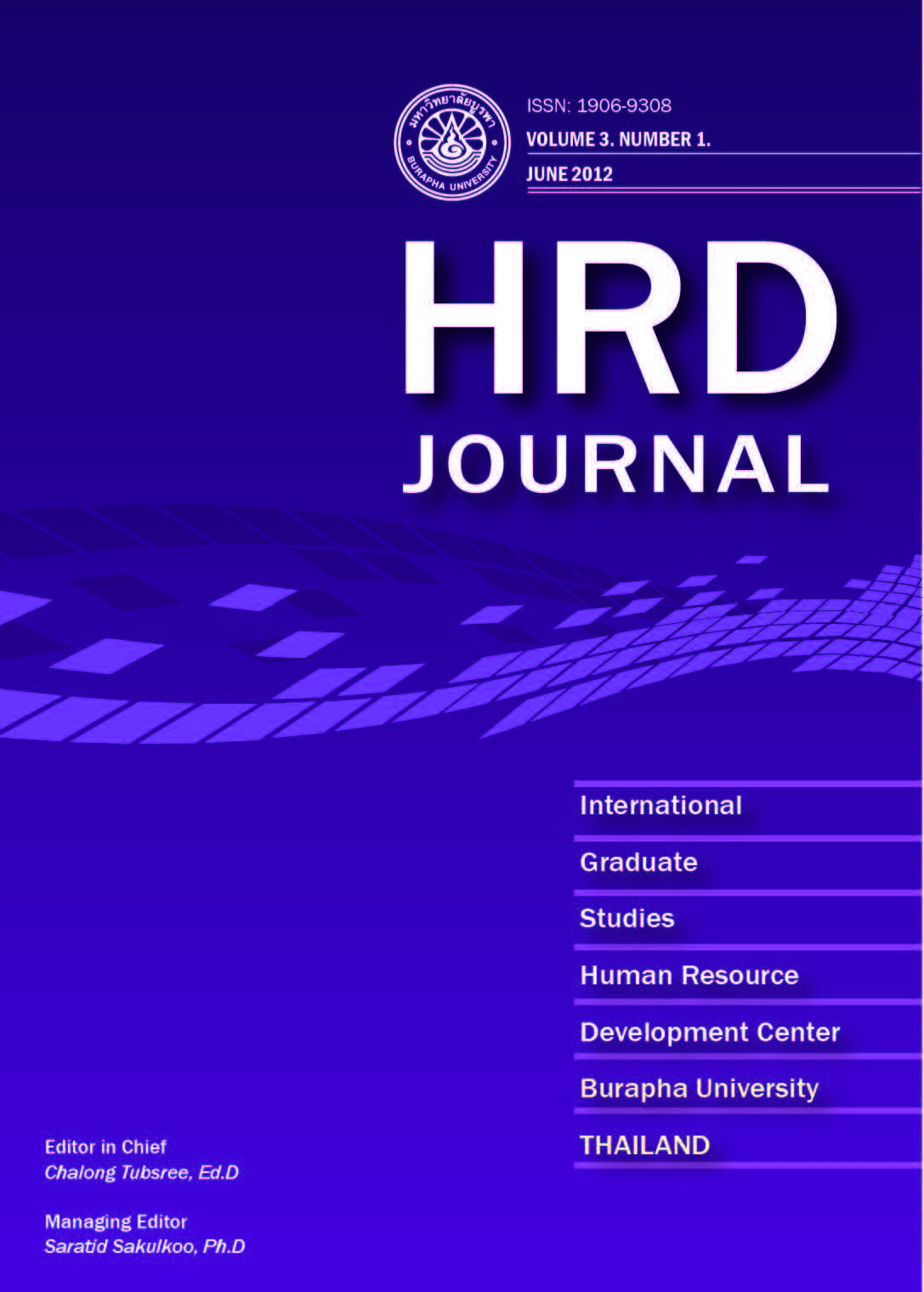Perceptions of Thai Community College Directors’ Leadership Effectiveness
Keywords:
Thai Community College, Director’s Leadership, EffectivenessAbstract
The purposes of this research were: 1) to survey the level of the effectiveness of community college and the significant factors influencing the effectiveness of community colleges: director’s traits, leader’s skills, transactional and transformational leadership; and 2) to develop the causal structural relationship model of the effectiveness of community colleges. This model consisted of 5 latent variables and 23 observed variables. A total of 433 participants were selected from 765 community college members across the country, comprised of 19 directors, 144 council committees and 270 government officers and employees. Data were collected via a 5-point rating scale questionnaire developed by the researcher. The content validity of the instrument was verified by qualified experts. In the data analysis to find a causal structural relationship model, the LISREL program version 8.72 was employed. The research results indicated that: 1) the effectiveness of community college, director’s traits, leader’s skills, transactional and transformational leadership were at a high level; 2) The causal structural relationship model of the effectiveness of community colleges that was developed and adjusted was valid and well fitted to the empirical data; 3) director’s traits and leader’s skills had not any direct effect on the effectiveness of community colleges, but had an indirect effect on the effectiveness of community colleges by mediating through transactional and transformational leadership; 4) director’s transactional leadership had not any direct effect on the effectiveness of the community college; and 5) director’s transformational leadership had a direct effect on the effectiveness of the community college.
Keywords : Thai Community College, Director’s Leadership, Effectiveness
Downloads
How to Cite
Issue
Section
License
Copyright@HRD Journal, Burapha University






